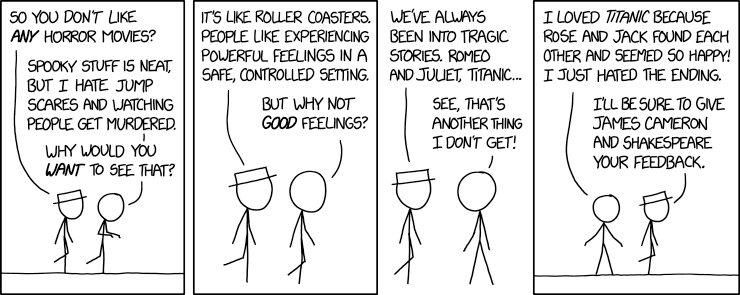Typewriter

Let's be perfectly clear about this: I have no good reason to want or to own a typewriter. I have a computer. Several, in fact. I have an AlphaSmart Neo2. I have nice pens, if I need to write on paper directly.
but I found this old school beauty at a thrift shop for $7 USD. It was a bit dirty, and clearly hadn't been used in years, but when I plugged it in it powered up and seemed to be in working order. It was impossible to be sure, since it didn't have a ribbon. But for $7 I was willing to chance it.
I brought it home, started cleaning it, and was pleasantly surprised to discover that ribbons for the SD700 are surprisingly easy to find and affordable. So while waiting for the ribbon to show up I kept cleaning and researching. The actual manual for this typewriter is hard to find, but I did find some clues from manuals for similar models.

The ribbon arrived and the typewriter works wonderfully. this one came with four “printwheels”, aka fonts. They're all great. Script-type fonts always make me laugh, but this one isn't bad. I really dig the sans-serif “Tempo” font, in all it's late-80's quasi-computer glory.

And this machine really is a quasi-computer. It has a 50,000 word spell-check dictionary built in, and also stores the last line you typed, so that you can go back and correct it, using the secondary correction ribbon. Corrections can be done letter-by-letter or word-by-word.
The funny thing, of course, is that as “advanced” as this machine is, the free-est text editing program on your phone has more features. Better spell check, infinitely more font and style choices... this typewriter is loud, slow, clunky, heavy, and completely outclassed.
So why do I love it?
Maybe because it's slow. There is a certain value to be had in moving more deliberately, in actually typing correctly because fixing my mistakes is a loud, slow process. Maybe just because it reminds me of a simpler time that I only vaguely glimpsed.
I remember, when I was probably about four years old, going into my dad's “study” in our little town house in Texas. He had an electric typewriter, and sometimes I would sit in the corner and watch him type. The machine was a kind of magic, back then. It hummed quietly whenever it was on, rapping out in short, staccato bursts whenever Dad wrote something. The room would fill with the smell of late-70's electronics, probably ozone? And also the metallic-but-not-unpleasant smell of typewriter, a mix of machine oil and ink ribbons.
Watching the letters appear on the paper, perfectly formed and instantly, was magic.
Still is.


